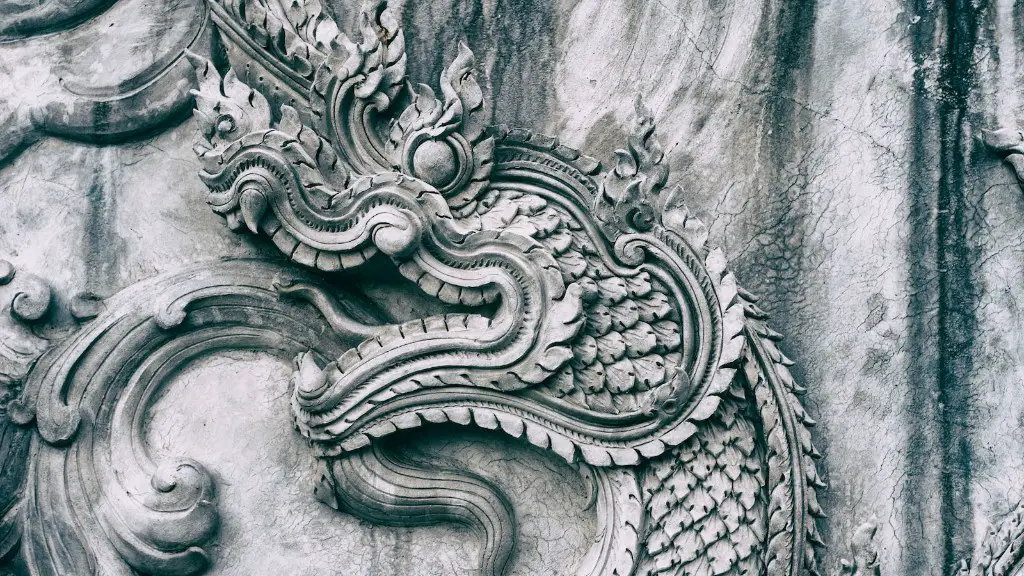Elephant Symbolism
The elephant has long been an object of reverence in Hinduism. Even today, the trunk-up elephant is used as a symbol of luck and prosperity in many parts of India. This majestic mammal has a symbolic significance in Hindu mythology and is featured in both ancient and contemporary religious art. The significance of the elephant in Hinduism is two-fold, with its physical representation being equally as important as its spiritual message.
The physical presence of the elephant symbolizes strength, power and stability. These are qualities attributed to the Hindu gods, and the elephant itself is considered an embodiment of the divine. Elephants are often seen in religious art and festivals, and they’re believed to help bridge the gap between the human and spiritual worlds. The elephant is also seen as a symbol of prosperity, fertility and abundance, qualities associated with the god Ganesha.
Hindus also associate the elephant with qualities of intelligence, wisdom and knowledge. Elephants are seen as intelligent creatures with an understanding of human needs and emotions. They are often regarded as bringers of good luck, and Hindus may even pray to elephants in hopes of receiving blessings. In addition to its physical representation, the elephant also carries spiritual messages in Hinduism.
The elephant is a symbol of the Higher Self — the true and divine part of ourselves. It symbolizes our ability to be guided by grace, wisdom and insight. It is considered a protector of humanity and a source of strength and courage in life’s most difficult moments. Hindus believe the power of the elephant can help us to discover our greater purpose in life. The elephant is also seen as a messenger of the gods, connecting us to the divine.
Elephant in Religious Execress
The elephant has a prominent role in religious ceremonies and rituals in Hinduism. It is believed that the energy of the elephant can be invoked for ceremonies such as weddings and funerals. The elephant may also be used in healing ceremonies to bring about balance and peace. It is also used to represent an aspect of the deity during puja ceremonies. For example, during the Ganpati puja, Hindus may use an elephant idol to invoke the blessings of Ganesha.
In some Hindu cultures, the elephant is an important part of the wedding ceremony. It is believed that the elephant brings blessings to the couple and ensures a happy marriage. The elephant may be used as a part of the wedding procession, either as an idol or a living animal. It is also believed that the elephant brings luck and prosperity to the newlyweds.
Hindu temples also feature the elephant prominently. Many temples have a shrine dedicated to Ganesh, the lord of good luck and success. The elephant is associated with this deity due to its symbolism of strength and stability. The giant Ganesha idols found in many Hindu temples also feature a sculpted elephant head.
In Hindu art, status and mythology, the elephant is a much-revered symbol. From its physical representation to its spiritual message, the elephant can bring many blessings and great luck to the faithful. Because of this, the elephant is seen as an integral part of Hinduism.
Elephant Origin Myth
The elephant is believed to be the embodiment of Lord Indra, the king of gods in Hindu mythology. Legends recount how Lord Indra was once harmed by a demon, causing him to become disfigured. In some versions of the myth, Varuna – the god of water – created the elephant to disguise Lord Indra’s transformation. Others believe the gods created a form of divine elephant to ensure Indra’s protection.
In Hindu art, Lord Indra is often shown riding an elephant, further emphasizing the elephant’s importance in Hinduism. While the myth varies from region to region, it emphasizes the elephant’s physical strength and spiritual power that it may bring to its master. This myth has been told for centuries, and the elephant’s symbolism still resonates with Hindus today.
Elephant Temples
India is home to many temples dedicated to the elephant. One of the most famous is the Gajamukha temple located in Tiruvaiyaru, Tamil Nadu. Here, the elephant-headed Ganesha is worshiped and respected. In addition, many Hindu temples in India and Nepal feature carved elephant statues to showcase its power and divinity.
The Dwarakadheesh Temple in Gujarat also features carved elephant sculptures, along with religious art depicting the elephant in different forms. These sculptures are believed to bring luck and protection to those who worship them. In addition to these temples, there are many elephant statues and idols used in Hindu homes to bring blessings and good fortune.
Elephant Worship
Hindus have long worshipped the elephant as a symbol of strength and stability. In some areas, devotees will offer prayers and offerings to the elephant, believing that doing so will bring good luck and health. Elephants are also thought to have protective qualities, and offerings may be given to them for protection.
In addition to prayers, Hindus may also light incense and offer food to the elephant. Elephants are often fed bananas, coconut, sugarcane and other fruit, as these are seen as auspicious offerings. Hindu households may also offer a modak, a special sweet made of coconut and jaggery, to the elephant as an offering.
Ganesha, the Elephant God
In Hindu mythology, the elephant is often associated with Lord Ganesha, the god of good luck, success and prosperity. He is often depicted as having the head of an elephant and the body of a human. Hindus often pray to Ganesha in hopes of receiving blessings and protection. Ganesha is believed to bring good luck and success to those who worship him, and the elephant is seen as an embodiment of his power.
Ganesha can also bring properties of protection and courage to those he watches over. He is seen as an angel for the duration of a person’s life, and those who worship him believe that he will protect them from danger and hardships. The elephant, as an embodiment of Ganesha, can serve as a powerful source of encouragement and strength.
While the elephant has a significant role in Hinduism, it is also a symbol of strength in other religions and cultures. The elephant is seen as a noble creature with the ability to inspire and motivate us in life. The stories and symbolism associated with the elephant in Hinduism help to emphasize its importance and power.


